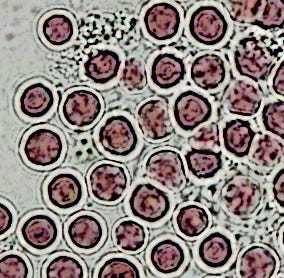Plant-Derrived Molecules That Work like Paxlovid.
Sulfated Polysaccharides Bind to the SARS2/covid-19 Virus and Block Infection.
Paxlovid is an interesting anti-viral medicine that has been approved for treating acute covid infections. There is some interest in using it for Long Covid, although it’s not really clear yet if it helps. It is starting to look like some (but not all) long haulers have a simmering, low-grade SARS2/covid infection, and it makes sense that treating those people with an antiviral might help.
Parallel to that is the reason for this post: there are studies that provide evidence that a variety of naturally occurring molecules found in algae work like Paxlovid: they bind to the virus spike protein and prevent it from doing its job of attaching to human cells. To the degree that the virus cannot attach to our cells, it cannot inject its RNA and take over that cell and spread.
“Can Algal Derived Bioactive Metabolites Serve as Potential Therapeutics for the Treatment of SARS-CoV-2 Like Viral Infection?” Frontiers in Microbiology: Virology, 11 Nov 2020. Link to full article.
This paper was an overview of all potential antivirals in algae. One interesting quote: “Based on the antiviral activity of Porphyridium polysaccharides against a wide range of viruses including HSV, varicella zoster virus, hepatitis B virus, vaccinia virus and retroviruses, this microalga has been considered to hold immense potential for the development of an antiviral pharmaceutical composition against SARS-CoV-2 as well.”
A second paper goes into more detail about how these polysaccharides bind to the virus and inactivate it:
“In silico evidence of antiviral activity against SARS-CoV-2 main protease of oligosaccharides from Porphyridium sp.” The Science of the Total Environment, 29 Apr 2022. PMID 35500710.
This paper involved using very powerful computers ( ‘in silico’) to carry out molecular docking simulations to identify molecules that will bind to the surface of the virus and reduce its ability to infect cells. This type of study is only the first level of screening - these compounds haven’t been tested on viruses in test-tubes, and they haven’t been tested on animals or humans infected by any virus. But it builds a case, and explores the mechanism. The clinical effectiveness of these compounds has not been tested yet - we don’t know how well they are absorbed, how long they stay in the body, or how effectively they block the virus in the real world. But it is moving us towards better antiviral therapies.

Sulfated Polysaccharides
The chemical compounds that have gotten the attention are sulfated polysaccharides. These are chains of sugars that have sulfate groups attached. The most common polysaccharide is starch. Starch is a long chain of many glucose molecules, it is broken down into sugar in the gut. But starch is not the only polysaccharide - almost any type of sugar can be chained to other sugar molecules. There are several other polysaccharides from algae that are used in food and cosmetics: agar-agar, carrageenan, and sodium alginate are 3 common examples. If these polysaccharides are large, they may form gels that humans cannot digest; but the shorter chained polysaccharides can be absorbed into the blood, where they may have valuable activities.
Other Natural Sources of Sulfated Polysaccharides
In addition to the microscopic Porphyridium, some other plant-based that produce antiviral compounds that include polysaccharides include:
“Seaweed” - a wide variety of ocean plants are sources
Astragalus - a traditional antiviral herb in Asia
Shiitake - Yummy mushroom rich in bioactive lentinan polysaccharides
“Sulfated polysaccharides - Medicinal Foods” www.pharmacologicalsciences.us/medicinal-foods/a-sulfated-polysaccharides.html
Oats have gotten much attention for their beta-glucan polysaccharides; most of those are not sulfated polysaccharides, but they have potentially beneficial uses when added to our diet, and there are some labs looking into cooking beta-glucans with a sulfating agent to create new anti-microbial compounds.
Chondroitin Sulfate is an important molecule in the body, and is sometimes taken as a supplement for arthritis. One study found that chondrotin has some antiviral effect, but that modifying the chondroitin to make it more sulfated greatly increases the activity against the SARS2/covid virus:
“High-Sulfated Glycosaminoglycans Prevent Coronavirus Replication.” Viruses, 17 Feb 2022. PMID 35216006.
The Bottom Line
For the time-being, there is little that can be done to translate this research into a health hack. A bowl of seaweed soup with shiitake mushrooms might not be enough to help (or would it ??), but in any case, it is a pretty ordinary part of the diet in some countries, and rather harmless. In the long term, there are many interesting leads being pursued and this might ultimately lead to standardized antiviral medicines that can be applied to chronic viral infections. We don’t know how much of Long Covid is caused by a low-grade, chronic infection, but that may be the case for some… and they might benefit from Paxlovid or a plant-based alternative that works in the same way.
My next article will be a bit more focused on the MCAS component of Long Covid, and will look specifically at how antihistamines are used to bring down that type of immune hyperactivity and lessen symptoms.




